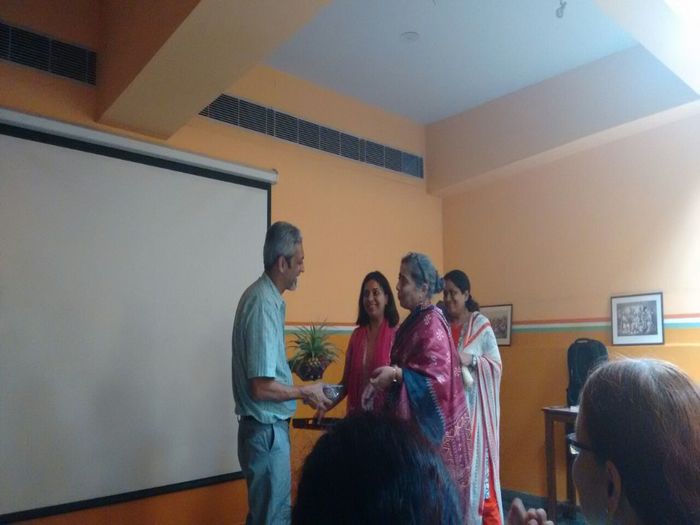Workshop On Adolescence For Teachers, by Expert, Dr. Vikram Patel.
The Indian School organised a workshop for teachers on 3rd July, 2015 on Adolescence by Dr. Vikram Patel. Dr. Patel has worked extensively in the field of International Mental Health. Co-founder of the Goa-based mental health research NGO, Sangath, and the Centre for Global Mental Health at the London School of Hygiene and Tropical Medicine where he is professor, Dr. Patel was recently featured in the Time magazine's category of Pioneers. He is especially noted for his path-breaking epidemiological research unravelling the debilitating effects of mental disorders among people in low and middle income nations and proving a strong link between mental disorders and poverty. Professor Patel was also profusely lauded for his efforts at addressing the unmet needs of resource-poor countries and his lifes inspiring and profound credo of mental health for all.
At our School, his session focused on the prevalence and nature of adolescent risk-taking and on the potential contributions of the neural, biological, intellectual and socio-emotional developments characteristic of adolescence. The workshop introduced its central idea with the help of a video on the different facets of adolescent health and development.
[gallery link="file"]
One possible explanation given by Dr. Patel for the risk-taking tendency in adolescents is that their brains work differently from those of younger children or adults. This is due to the difference in the limbic and the pre-frontal cortex regions of the brain which lead to an imbalance between the emotional and rational development in adolescents.
Dr. Patel also talked about how adolescence is characterised by transition. One of the most important transitions occurring during adolescence is the rise of peer relationships in importance and influence. He elaborated on how peer relationships provide a context not only for the acquisition and maintenance of friendships but also for the development of key social skills, problem-solving skills, and empathy. Peer relationships, however, are not entirely positive. They may also play a role in the development of negative outcomes, such as poor academic adjustment, delinquency, aggression, depression or social anxiety.
Dr. Patels workshop offered valuable insights to the teachers to understand their students better and empathise with them by providing them an atmosphere of trust and understanding one which is totally democratic and without fear.
Ms. Sukhmeen Cheema.













